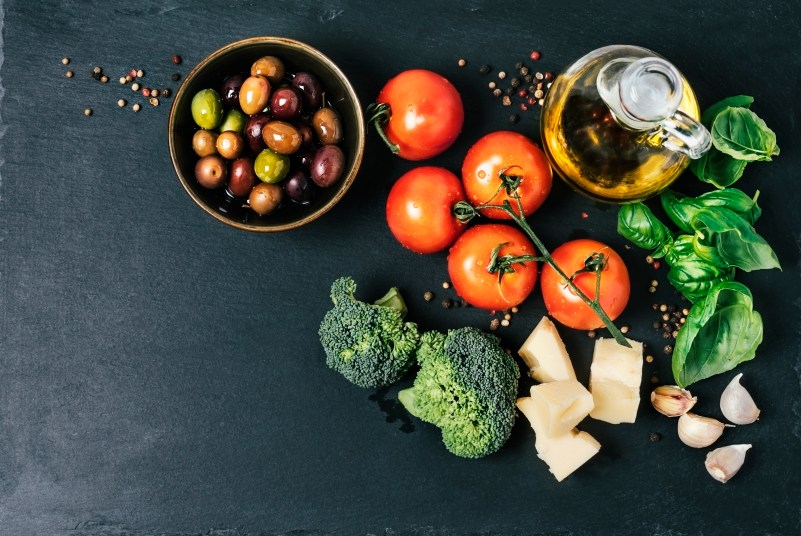Dairy May Not Protect Bones After Menopause, But a Mediterranean Diet Could
The real way you should be eating to prevent bone loss and injury.

Once we hit a certain age, our bodies go through a number of changes. After menopause, for example, our levels of estrogen (a bone-protecting hormone) drop, so our bones become weaker. Many believe that consuming dairy products will protect our bones because they are rich in calcium, but new research says this might not be the case.
Dairy Intake, Menopause, and Bone Loss
In a new study out of George Mason University, researchers followed 1,955 menopausal women of the average age of 46 for 10 years. Subjects had a yearly bone scan and were asked to complete food questionnaires about their dairy intake three times during the 10-year period. Women were sorted into groups depending on how much dairy they consumed on average: less than 1/2 serving, 1/2 to 1 ½ servings, 1 ½ and 2 ½ servings, and more than 2 ½ servings per day.
During the 10 year follow-up, 64 of the women experienced 72 nontraumatic fractures (or fractures that weren’t caused by traumatic events, like an accident). The researchers determined that there was no significant difference in fracture risk or bone mineral density based on how much dairy the women consumed.
So what should we eat instead?
Dairy shouldn’t necessarily be written off as a bone-building food. This study didn’t account for the types of dairy products women consumed, which each offer different amounts of bone-enhancing nutrients like calcium and vitamin D. However, experts suggest that there are so many other nutrients you need to maintain strong bones as you age, so we should really aim to prioritize them all. One great way to do this is by adopting a Mediterranean-style diet, which has shown in other research to improve bone and muscle mass in postmenopausal women!
“This study adds to the existing, albeit inconsistent, data suggesting a lack of benefit from dairy intake on bone mineral density and fracture risk,” Stephanie Faubion, M.D., medical director of the North American Menopause Society, said in a press release. “However, there are many other health benefits of a Mediterranean-type diet rich in fruits, vegetables, and whole grains, as well as lean protein such as fish and low-fat dairy.”
What’s more, eating a healthy diet isn’t the only thing we need to do to protect our bones after menopause. “In addition, regular weight-bearing exercise, such as walking or jogging, can help maintain bone strength, and activities that improve strength and balance, such as yoga and tai chi, may help prevent falls,” Dr. Faubion said.
So in addition to filling your plate with the right foods, dust off that yoga mat and get moving!
















